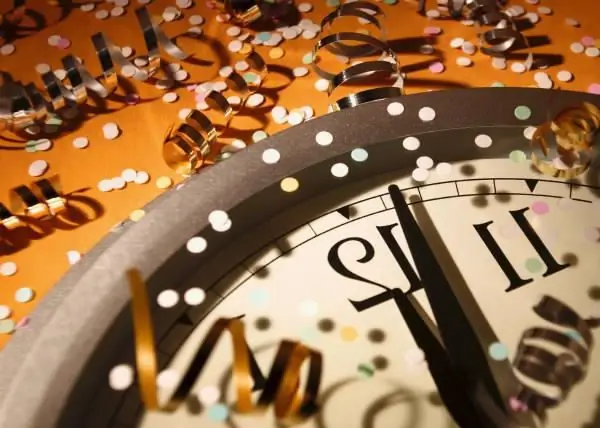2026 Author: Priscilla Miln | miln@babymagazinclub.com. Last modified: 2025-01-22 17:55:15
The tradition of celebrating the New Year originated five thousand years ago in Ancient Mesopotamia. It was celebrated on the days of the spring equinox, before the start of agricultural work, and was associated with the arrival of water in the Tigris and Euphrates. Gradually, this tradition spread among neighboring peoples, acquiring specific customs, characters and signs. How is the New Year celebrated in different countries today? Let's talk about it.
New Year traditions in Russia
Initially, our ancestors celebrated this holiday in March, and it was associated with the arrival of spring, the awakening of the earth from winter sleep. The New Year was preceded by "carols", when the mummers walked around the yards, sang songs, scattered grain. They were served ritual meals - pancakes and kutya.
With the adoption of Christianity, the New Year began to be celebrated also on September 1st. It was believed that on this day God created the world. This date was officially approved by John III in 1492. After 200 years, in 1700, Peter I orderedcelebrate the New Year on January 1, as did the whole of Europe. It was then that they began to decorate the Christmas tree, which since ancient times in Russia was considered the tree of death.

New Year's traditions in Russia took root hard. Peter I forcibly forced his subjects to have fun, arranged fireworks and fun. Elizabeth I acted softer, organizing free holidays for the people and magnificent masquerades for the nobility. Gradually, the New Year fit into everyday life, merged with traditional winter carols. Its main characters - Santa Claus and the Snow Maiden - appeared much later, in the 30s of the XX century. At present, the New Year is strongly associated with the Christmas tree, tangerines, Olivier salad, chimes and gifts.
New Year's traditions from different European countries
The main holiday here is Catholic Christmas. It is celebrated on a grand scale on the night of December 25th. The New Year is celebrated more modestly. As in Russia, it is associated with decorated Christmas trees, the striking of clocks and champagne. However, each country has its own New Year traditions:
- In England on this day, a man can kiss any woman standing under mistletoe branches. The doors of the houses open to let in the New Year and the guests.
- In Spain, it is customary to eat a grape every time the clock strikes. If you managed to eat all 12, then your wish will come true.
- In France, a baked bean pie is served on the table. Whoever finds it in his piece becomes the king of the night. The rest follow his orders.
- In Germany, people listen to the chimes from the topchair with legs. And then "jump" into the New Year with the final blow.
- In Italy, grapes are also eaten to the sound of the chimes, and then the lights in the house are turned off and everyone is kissed. Everyone puts on something red, be it socks or shorts. But the tradition of throwing old things out of the window is gradually becoming a thing of the past.
- In Norway, children receive small gifts from the dwarf Julenissen and a goat that was once saved by King Olaf II. To appease these characters, they leave oat ears or flakes for the fabulous animal.
Greenland
The largest island in the world belongs to Denmark. Here, in the conditions of the Arctic climate, the Eskimos and a small percentage of Europeans live. Hence the specific customs of celebrating the New Year, which comes twice. The first time is at 20.00, Danish time. Then - at midnight, as everywhere in the world. As a gift, you can be presented with an ice figurine of a walrus, polar bear or deer.

Traditions of the New Year's table are quite specific. Eskimos, in addition to the usual products, eat raw meat with a "smell". For example, a seal or a shark, which are buried in the frozen ground for several months. After such manipulations, the meat acquires a special taste and smell. The locals also love the liver of seagulls, seals, which are eaten without any processing.
Canada and USA
Christmas is celebrated here on a grand scale, just like in Europe. Santa Claus flies to the children on magical reindeer, leaves gifts under the Christmas tree. New Yearit is celebrated more modestly, but it is with him that hopes for a new life are connected. Americans, like us, promise to make important changes in their habits under the chiming clock: quit smoking, go to the gym. White swans are hung on the Christmas tree - a symbol of a brighter future.
Both in the USA and in Canada folk festivals, colorful festivals, parades, concerts of stars and other spectacular events coincide with this holiday. Many people prefer to celebrate the New Year on the street, with friends. Skating rinks are very popular in Canada.
Interesting traditions of New Year's Eve, which are still observed by some Navajo Indians. They put on white clothes, paint their faces and dance around the fire at the edge of the forest. In the hands of the Indians are sticks with balls of white feathers that are burned to drive away the winter. Strong men then lift a huge red orb onto a pole, signifying the birth of a new Sun.
Cuba
On the eve of the holiday there is no snow here and the usual Christmas trees. Outside the window is a thirty-degree heat, ocean waves run ashore, and the sun shines brightly. Therefore, it is customary to decorate with toys a palm tree or araucaria - a tree with flat needles.

New Year's traditions are similar to Spanish ones - under the chiming clock they also rush to eat 12 grapes, and then pre-prepared water splashes out of windows and doors into the street. It is believed that negativity leaves with it, and the way is opened for everything pure, bright.
Children's desires are fulfilled here by three magic magicians - Gaspar, B althazar and Melchior. It was they who saw the Star of Bethlehemand brought gifts to baby Jesus. In Cuba, they are called kings, and the New Year itself is the Day of the Kings.
Brazil
In this country, the New Year is celebrated without Santa Claus. December 31 is the height of summer, so the people of Brazil flock to the coast. The main character of the holiday is the goddess of the sea Iemanzhe. It is customary for her to bring gifts in the form of flowers, candles, jewelry, perfumes, fruits and champagne. It is drunk on the beach after making a wish, and the rest is thrown into the ocean. The remaining gifts are floated on wooden boats as a token of gratitude for all the good things and asking for help in the coming year.
New Year's tradition is the universal "fraternization". On this day, Brazilians forgive the wrongs done, make a promise to be more tolerant in the future. The Christmas tree is floating here, fireworks are also launched from rafts. The holiday is accompanied by general fun, music and dancing.
Africa
The ancient Egyptians were among the first to celebrate the New Year. They dated the holiday to the time of the flood of the Nile. The appearance of the brightest star in the sky - Sirius - spoke of his onset. And how do they celebrate the New Year in different countries of Africa today?

Firstly, there is no single fixed date. In "advanced" South Africa, for example, they adopted European traditions and celebrate the New Year on January 1st. In Ethiopia, it falls on September 11, when the rainy season ends. In other areas, the date may be tied to the flood of rivers, various agricultural work, old legends.
Instead of firs, Africansdecorate palm trees. They do not have multi-colored balls, so fruits and luminous garlands are hung on trees. The more of them, the more fertile the coming year will be. Champagne is too expensive, so the locals drink homemade beer, scooping it from a bucket. The holiday is accompanied by numerous rituals, ritual dances. To wash away all the bad things and enter a new period of life clean, Africans bathe in water.
India
This country has very interesting New Year traditions. Representatives of different religious movements live on its territory, so the holiday is celebrated several times. Hindus celebrate January 1 with joy, dressing up a mango tree instead of a Christmas tree.
Even more solemnly celebrated "lunar" New Year, which falls in the spring. Celebration dates vary by state. As a rule, a fun carnival is arranged these days. In South India early in the morning, mothers place small gifts on a large tray and children choose them with their eyes closed.

In the autumn comes another New Year - Diwali. Its other name is the festival of lights. Lanterns are lit everywhere, fireworks soar into the sky, boats with candles are launched along the river. Hindus praise the goddess of we alth - Lakshmi. They also celebrate the Muslim New Year. There is hardly any other country in the world where this holiday is so loved.
China
The New Year traditions of this country are very ancient and are associated with the onset of spring. The holiday is celebrated according to the lunar calendar, usually falling betweenJanuary 17th and February 20th. This is a family celebration when relatives get together. Instead of a Christmas tree, the Chinese decorate an ordinary tree. Lanterns and red balloons are hung on it. They call it the Tree of Light.
The streets are also decorated with lanterns. In the New Year, it is customary to scare away evil spirits with loud noise, so firecrackers and fireworks are launched everywhere. One of the main events is the dragon dance, which is made of wire and paper. Its length sometimes reaches 10 meters.

Before a family dinner, festive meals are "offered" to dead ancestors. After observing the ritual, the living begin to eat. This symbolizes the unity of the family. The Chinese do not go to bed on New Year's Eve. They believe that on this day the gods bring good luck to their homes, and they are afraid to oversleep it.
Japan
The history of New Year traditions here is no less ancient than in China. Once the holiday was celebrated in the spring and was associated with the birth of a new life. But at the beginning of the 20th century, the Japanese switched to a generally accepted calendar, while retaining specific customs. The obligatory attributes of the holiday here are:
- White arrows protecting the house from harm.
- A rake for raking in happiness.
- Image of a ship on which the seven spirits sail to the Japanese on New Year's Eve, bringing good luck with them. It is customary to put such pictures under the pillow.
- An eyeless doll whose one eye is painted when making a wish. The second is depicted only after the plan is fulfilled.

Houses decoratebamboo and pine branches. Children under 12 dress up in new clothes. New Year is celebrated with family. Be sure to visit the temples from where the ritual fire is brought. At midnight the bells chime 108 times. With each blow, the Japanese get rid of one of the sins. They go to bed early here, because you have to get up at dawn. Sunrise on January 1, according to ancient tradition, should be met with applause.
Australia
Unusual New Year traditions of this country are connected with weather conditions. On the night of January 1, there is a forty-degree heat here, so the celebration takes place on the beach. At the same time, European attributes are preserved: Santa Claus in a bathing suit, decorated Christmas trees, dazzling fireworks and sparklers. Also, a parade of boats and surfer competitions are timed to coincide with this time.
New Year's traditions of different countries are different from each other. But people's hope for the best, the desire for happiness, the light that lives in each of us, regardless of nationality, remains common.
Recommended:
Celebration of the New Year: history and traditions. New Year Celebration Ideas
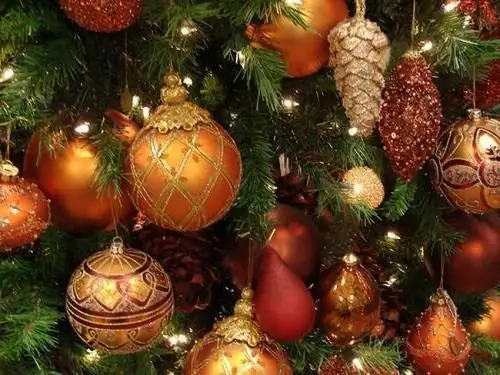
Preparing for the New Year can be done in different ways. Some of us love a quiet family holiday with Russian salad and a Christmas tree decorated with antique toys. Others go to celebrate the New Year in another country. Still others gather a huge company and arrange a noisy celebration. After all, a magical night happens only once a year
Where to celebrate the New Year? New Year tours in Russia and other countries
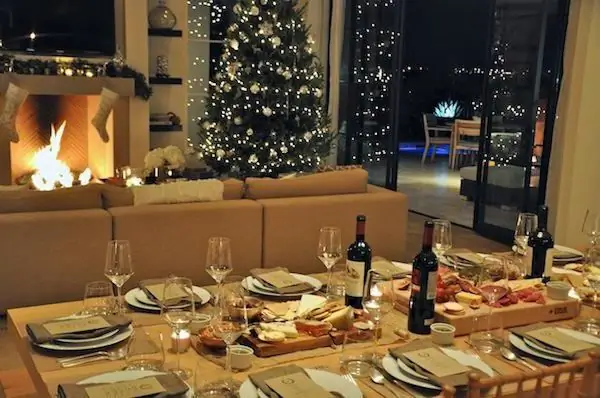
The first snow has just fallen outside, and everyone is already wondering where to celebrate the New Year. After all, the sooner you start planning a holiday, the more likely it is that it will go exactly as it was intended
Where is March 8 celebrated, except for the countries of the former USSR? Which countries also celebrate March 8?

Every country has a women's holiday. It absolutely does not matter what it is called, the main thing is that men do not forget about their wives, mothers, daughters, sisters
New Year at school. New Year's events. How to decorate the school for the New Year
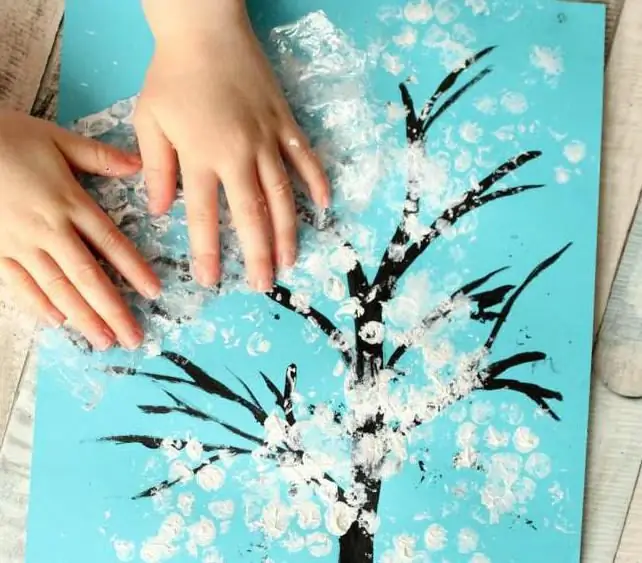
New Year at school is an interesting solemn event, for which you definitely need to prepare for the celebration to be held at the highest level
History of the holiday Old New Year. Rituals, signs and traditions for the Old New Year
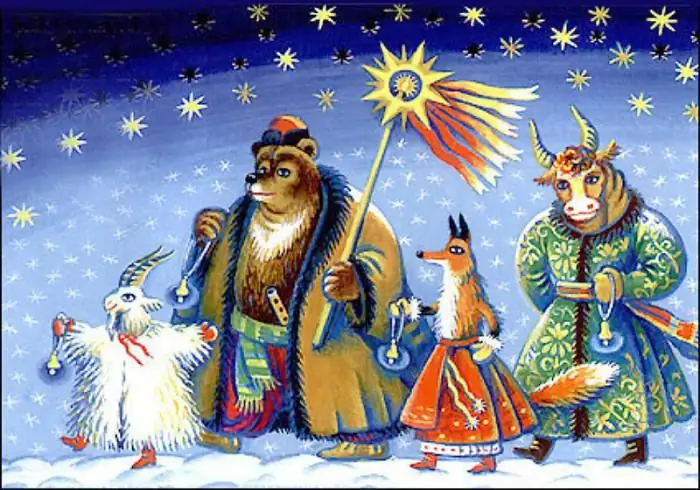
What dates our history does not contain! The Old New Year holiday is not in any calendar of the world, but for almost a century it has been celebrated in our country and in some states of near and far abroad. Almost two weeks after the first of January, the fun at the Christmas tree is back. The current dual tradition is very surprising to foreigners, and not all of our compatriots know why this is happening. Where did the custom of celebrating the Old New Year come from? What date is it marked?

